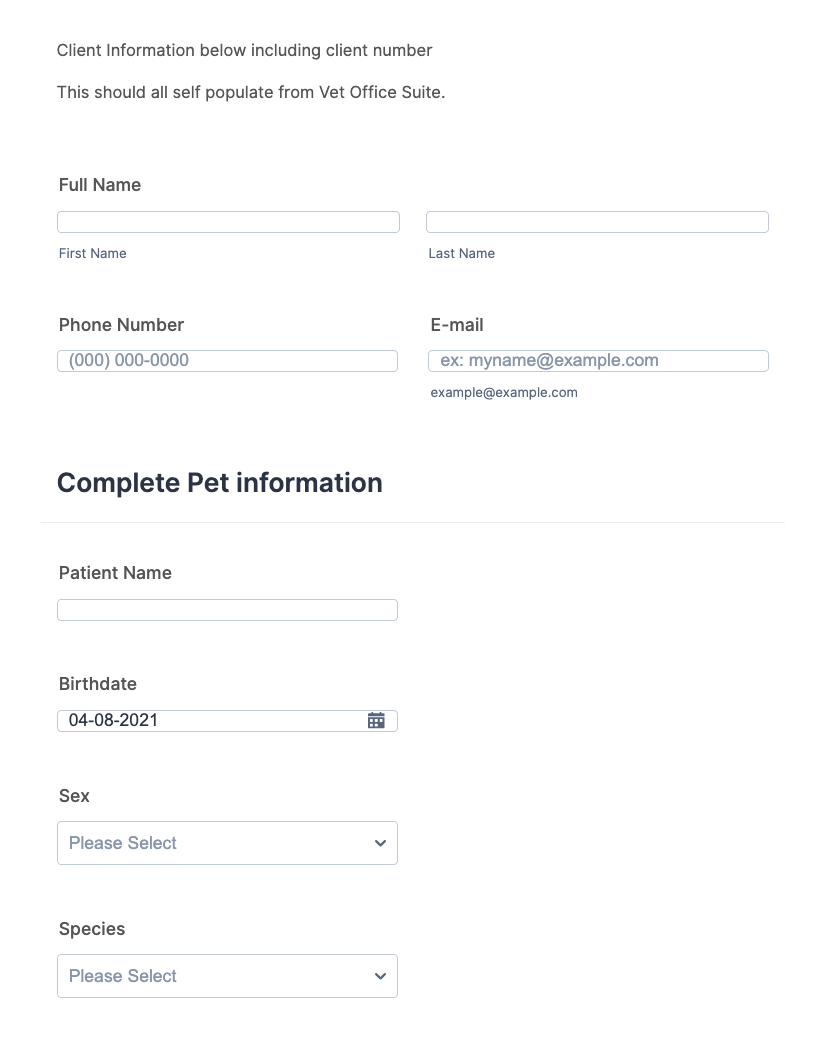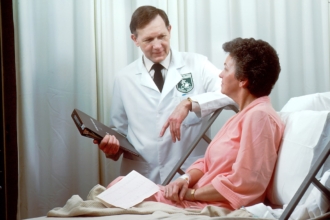People love their pets like family members, but that doesn’t mean Fido and Boots have the same confidentiality rights as people under the Health Insurance Portability and Accountability Act (HIPAA), which sets strict confidentiality requirements for the protected health information (PHI) of human patients.
The reason is simple. While you might regard yourself as a “pet parent,” HIPAA simply sees you as a pet owner, and that means your dog or cat — or horse, cow, bird, lizard, etc. — is considered your property. Nonetheless, some states have laws to protect the confidentiality of veterinary records. So although a dog or cat has no interest in confidentiality, if the person who brought them to the vet does, they may be protected.
Just so you know
Keep your veterinary records confidential and secure with Jotform’s HIPAA-friendly forms.
At least 33 states have laws regulating the confidentiality of veterinary care records to some degree. Most deem the records “privileged and confidential” and forbid release without written authorization, with a few exceptions, such as through a subpoena or when an organization collects anonymous statistical information for research and public health purposes.
While there isn’t an overarching federal statute, state laws generally are quite protective of the confidentiality of veterinary care records. In some cases, the law even bars releasing information in response to a request for records that are otherwise public — that’s what the office of the Attorney General of Texas made clear in a 2015 legal opinion.
The Texas case was unusual in that it pitted an animal rights group against Texas A&M, one of the state’s premier universities. The Beagle Freedom Project, an organization “dedicated to the rescue and rehabilitation of animals used in testing and research and subjected to other forms of unique cruelty, abuse and neglect,” encourages people to virtually adopt research animals from universities and research institutions nationwide.
People who claimed to have “virtually” adopted the dogs submitted dozens of requests to the university for records of specific dogs that were actually legally the property of the university. Texas A&M declined to release the records based on the Attorney General’s interpretation of the Texas Veterinary Practice Act, which allows release of veterinarian records only with authorization of the pet owner or in compliance with a court order.
There have been cases where even animal advocates have considered state laws on veterinarian confidentiality too strict. Animal control agencies in Kentucky were dismayed a few years ago by a newly passed state law that tightly restricted what information veterinarians could release to third parties, such as animal shelters, pet grooming facilities, or simply a Good Samaritan trying to reconnect a stray animal with its human family.
The law forbids releasing information without the consent of the pet owner. Veterinarians and animal control agencies complained the law would complicate the release of information — particularly the status of rabies vaccinations — which had routinely occurred over the phone.
Regardless of the specifics of each state’s laws — or even in the absence of a state law mandating confidentiality of veterinary records — veterinarians have a general professional obligation to maintain accurate records and respect the privacy of the human client whose animal they’ve treated.
The best route for veterinary practitioners is to be familiar with the laws of their state and take prudent steps to stay within those laws or to maintain some degree of confidentiality even if they practice in a state without a legal mandate.
It’s actually not that hard to protect the confidentiality of veterinary records, even if your vet practice is in a state that doesn’t mandate it. Jotform has templates for various veterinary services. You can easily and affordably upgrade these to HIPAA-friendly forms.
Taking the added steps to align your vet practice with HIPAA rules is a way to stay ahead of the compliance curve and offer your human clients more protection — even if your actual patients are cheerfully indifferent.








































































































Send Comment: